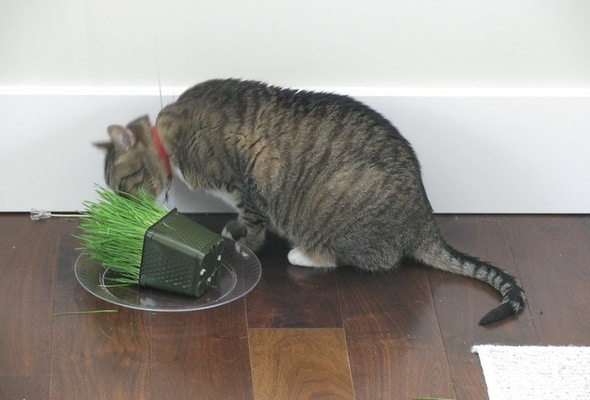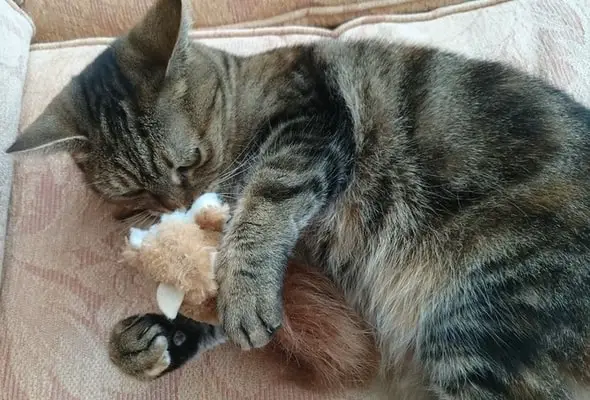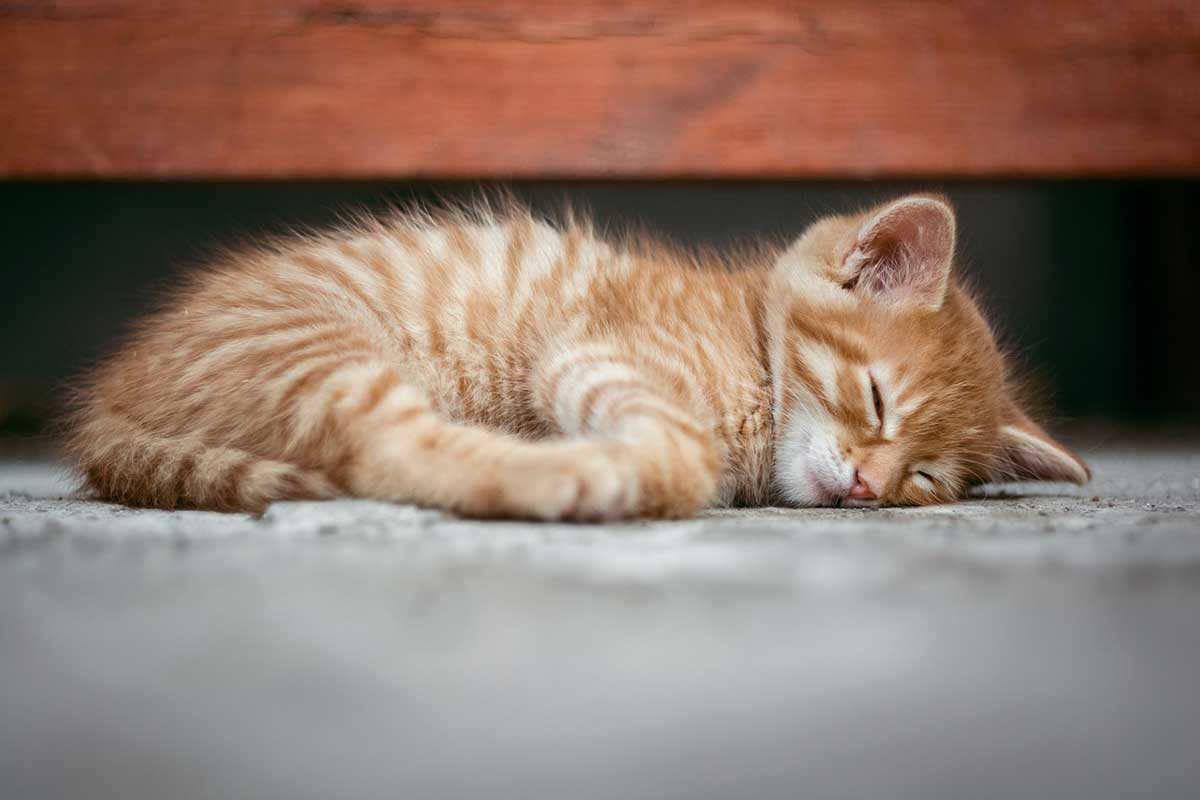It is well known that adult cats enjoy catnip. The herb provokes a range of physical and behavioral responses in cats that can seem humorous and erratic to those watching. Often acting as a sedative and relaxant, some consider catnip to be therapeutic for cats, and will provide the herb to their pets on a regular basis. While the effects that catnip can have on adult cats are well known, what does it do to kittens? Can kittens have catnip?
Can Kittens Have Catnip?
Yes, kittens can have catnip. As far as we know, catnip is not harmful or dangerous to kittens and does not impact their development. While this may be the case, many owners still decide to wait until their kitten has matured before introducing them to this intoxicating herbal treat.
You yourself may even have doubts about giving kittens catnip. However, the hesitancy of pet owners to give their kittens catnip seems to have more to do with our own complicated relationship to drugs than it has to do with the science behind catnip.
To clarify, catnip is not considered a drug. Even so, because catnip can alter a cat’s mood and behavior, people often associate the intoxicated behavior of cats with being under the influence.
For the same reason people are opposed to giving alcohol to underage children, many often think that the same logic should apply to kittens with catnip.
This is a false equivalency and a poor comparison for a number of reasons. To explain why this is, we’ll go into what happens when you give kittens and cats catnip, as well as outline how the drug itself works.
What Does Catnip Do to Kittens?
Although it is safe for kittens to have catnip, should you give it to them? For starters, you should know that catnip probably won’t have the same effect on your kitten as it does on adult cats.
Studies show that kittens under the age of six months are less receptive to the herb than their adult counterparts. While this may be true generally, responses to catnip can vary from individual to individual, and you may find that your kitten is receptive to the herb.
Still, kittens that are found to be sensitive to catnip will usually exhibit milder and less noticeable shifts in their behavior and mood than are seen in adult cats.
If your kitten does react, its response may range from a subtle increase in its playfulness to symptoms of lethargy and sedation. As kittens can experience both stimulation and sedation from catnip, it is impossible to say for certain how exactly your kitten will react, if it even does react at all.
It should also be noted that consuming too much catnip may hurt your kitten’s stomach and cause indigestion.
How Does Catnip Work?
At this point, you may be wondering what the science is behind catnip. The answer is fascinating and may actually surprise you.
Catnip, also known as catwort and catmint, is a flowering plant native to Europe, the Middle East, and Asia. While it originates in these areas, the herb can also be found growing wild in areas across the globe.
Catnip contains terpenoid oils in its leaves with the chemical compound nepetalactone. Contrary to what you might suppose, nepetalactone’s primary function is not to get cats high.
In fact, nepetalactone is an organic insect repellent the plant produces to protect itself from hungry intruders.
At the same time that nepetalactone is effective at deterring insects, it is also the key chemical compound in catnip that is intoxicating to cats. The compound itself functions as an attractant to many species of felines and is absorbed into a cat’s system through their nose.
Structurally resembling cat pheromones, nepetalactone can cause arousal in cats once absorbed into their systems.
This response triggers the brain’s release of “happy chemicals” such as beta-endorphins. Beta-endorphins will increase a cat’s sense of wellbeing and lower its stress levels, helping it to mellow out.
Why Doesn’t My Kitten or Cat Enjoy Catnip?
Now that we know how catnip works generally, and that it’s less effective for kittens, it’s time to delve into why it doesn’t work for some cats and most kittens.

For starters, a sensitivity to catnip is actually an inherited and hereditary trait in cats. That means that a cat’s enjoyment of the herb is entirely dependent on its biology and genetics. As such, some cats lack the receptors that nepetalactone binds to, and so may display indifference when shown the herb.
Kittens, even if they have the genes necessary to enjoy catnip, will typically respond less intensely to catnip because they possess fewer of the receptors nepetalactone binds to than adult cats.
This is why it is said that only cats over the age of six months are capable of enjoying catnip. Once kittens begin to mature, they develop a taste and biological predisposition for the herb, making it more effective in their systems.
While you may now be tempted to give your kitten catnip to see how they react, just be aware that their response may change as they grow older.
How do I Know if my Kitten is Enjoying Catnip?
In truth, we can never truly know if a kitten or cat is enjoying catnip. Because we can’t communicate directly with our cats, we have to rely on visual cues and changes in their behavior to determine a cat or kitten’s pleasure.

Cats and kittens that are enjoying catnip will generally become more touchy-feely and rub against your body or objects in your home. They may also become “chatty” by vocalizing a mix of purrs and growls.
Conversely, the easiest way to tell that your cat or kitten is not enjoying catnip is by their disinterest or aversion to it. Cats are only attracted to catnip because it makes them feel good–without that feel-good response, they have no reason to interact with it.
If you do decide to give your kitten catnip, offer it to them passively and await their response. Do not try to feed your kitten catnip or hold the herb in their face. It is best to let them discover it on their own terms.
Conclusion
Can kittens have catnip? As we’ve learned, the answer is more complicated than just yes/no. While catnip is not toxic to kittens, there is a good chance that your kitten is not yet old enough to have a noticeable response to it.
Because some cats don’t have the genetic predisposition to enjoy catnip, your kitten may also never enjoy catnip, even as an adult. Every individual has a different response, and it is important to pay close attention to a cat’s mood and behavior when considering or providing catnip.

